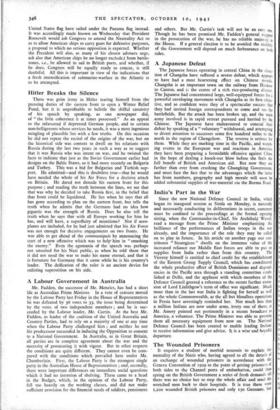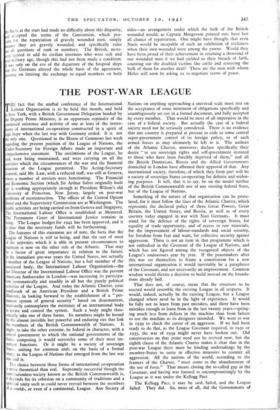The Wounded Prisoners
It requires a student of morbid neurosis to explain the mentality of the Nazis who, having agreed to all the details of an exchange of wounded prisoners in accordance with the Geneva Convention of 1929 to the point of getting prisoners of both sides to the Channel ports of embarkation, could then spring on the British Government a series of fresh demands till there was no choice but to stop the whole affair and send the wretched men back to their hospitals. It is true there were 1,200 wounded British prisoners and only 150 Germans, but e Nazis at the start had made no difficulty about this disparity, accepted the terms of the Convention, which pro- des for the repatriation of gravely wounded men, simply use they are gravely wounded, and specifically rules t all questions of rank or numbers. The British, more- er, agreed to add 6o civilian internees who were sick and 'er military age, though this had not been made a condition. t was only on the eve of the departure of the hospital ships at the Germans altered the whole basis of the agreement, sisting on limiting the exchange to equal numbers on both sides—an arrangement under which the bulk of the British wounded would, as Captain Margesson pointed out, have lost all chance of repatriation. One might have thought that even Nazis would be incapable of such an exhibition of trickiness when their own wounded were among the pawns. Would they have been proud of their achievement in retaining a thousand of our wounded men if we had yielded to their breach of faith, counting out the disabled victims like cattle and reserving the bulk of them for another deal? These are the men with whom Hitler will soon be asking us to negotiate terms of peace.



























 Previous page
Previous page